<Figure1>
Institute for Genome Research at Tokushima University (left) and the Tsukuba research institute of Ono Pharmaceutical Co., Ltd. (right).
HOME > Research and Development Projects Adopted in FY2014 > Manipulation of cell fate by multi-functional bio-molecules.
Project Leader:Okazaki Taku
Professor, Institute for Genome Research, Tokushima University
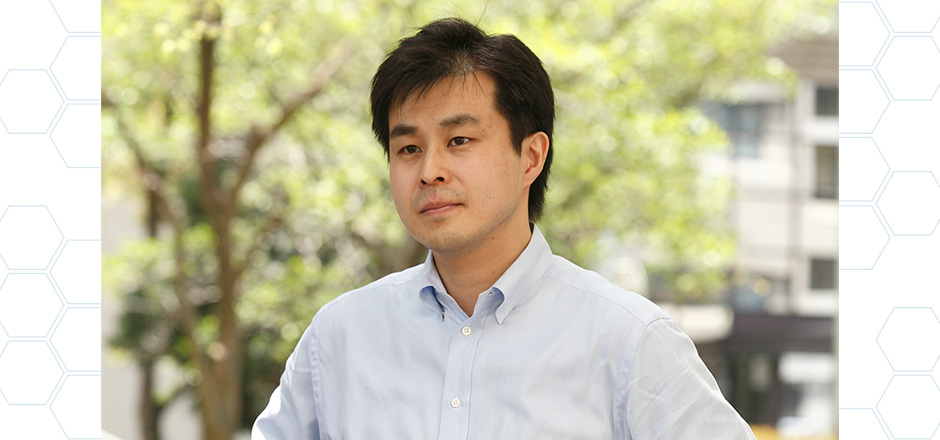
The advancement of biotechnology enabled us to create various kinds of bio-pharmaceuticals. To date, antibodies that block the function of target molecules or label cells expressing cognate antigens have been vigorously explored. In contrast, the development of bio-molecules that activate the function of target molecules, especially inhibitory molecules, has not been as successful as they were expected to be, so far. In addition, the development of bio-molecules that modulates the balance of multiple stimulatory and inhibitory molecules remains little more than fantasy.
Bio-molecules targeting cell surface molecules exert their function by either changing the function of the cells or changing the sensitivity of the cells against other effector cells. By regulating the function of multiple molecules simultaneously or in a step-wise fashion, we may be able to control the function or sensitivity of the cells of interest as we wish and achieve complete cure of diverse diseases. We may also need to maintain the effect for a longer period of time or vanish the effect instantly to conquer target diseases without adverse effects.
The aim of this project is to develop fundamental technologies that enable us to regulate the function or sensitivity of the cells of interest by modulating the balance of multiple stimulatory and inhibitory molecules.
PD-1 was identified by Prof. Tasuku Honjo (Kyoto University) in 1992 as a molecule whose expression was induced by apoptotic stimuli. We have shown together with Prof. Honjo that PD-1 regulates autoimmunity by inhibiting immune responses against self-antigens. We have also shown that PD-1 regulates anti-tumor immunity and anti-infectious immunity. Later, clinical trials of anti-PD-1 blocking antibody conducted by Ono pharmaceuticals Co. Ltd., the collaborator of this project, revealed that PD-1 also regulates anti-tumor immunity in human cancer patients and that the blockade of PD-1 function rejuvenated the anti-tumor immunity resulting in the eradication of tumors in a significant proportion of the patients.
Mice genetically engineered to lack PD-1 gene (PD-1KO mice) develop different forms of autoimmune diseases in different genetic backgrounds, suggesting that genes with strain-specific polymorphisms act synergistically with PD-1 to prevent autoimmunity. We have recently found that PD-1 cooperates with another immune regulator LAG-3 in the regulation of autoimmunity.
In this project, we focus on PD-1, LAG-3 and other immune regulators. Through our trials to develop a maneuver to control the function or sensitivity of lymphocytes by regulating the function of these immune regulators simultaneously or in a step-wise fashion, we aim to develop fundamental technologies required.
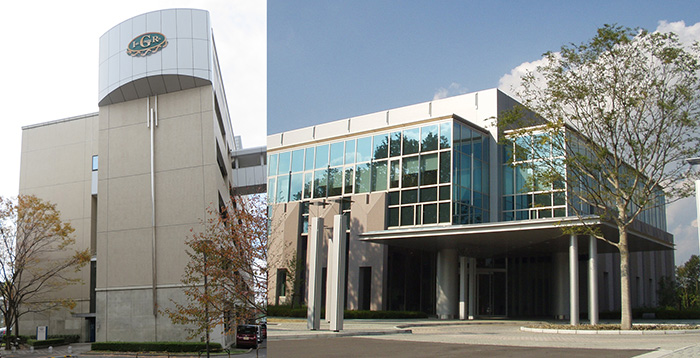
Institute for Genome Research at Tokushima University (left) and the Tsukuba research institute of Ono Pharmaceutical Co., Ltd. (right).
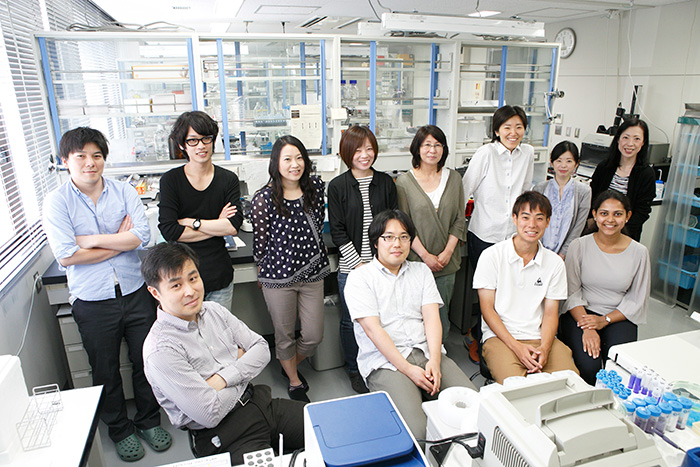
Members of the Division of Immune Regulation, Institute for Genome Research, Tokushima University.
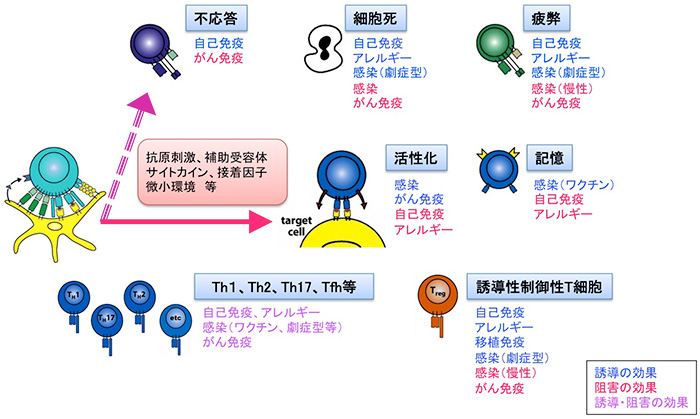
T lymphocytes are not uniformly activated but rather they go into various states upon stimulation with cognate antigen. Accumulating evidence suggests that co-receptors play critical roles in the determination of the fates of T lymphocytes. We try to develop a maneuver to control the fates of T lymphocytes, which may lead to the establishment of curative therapies against various kinds of illnesses.
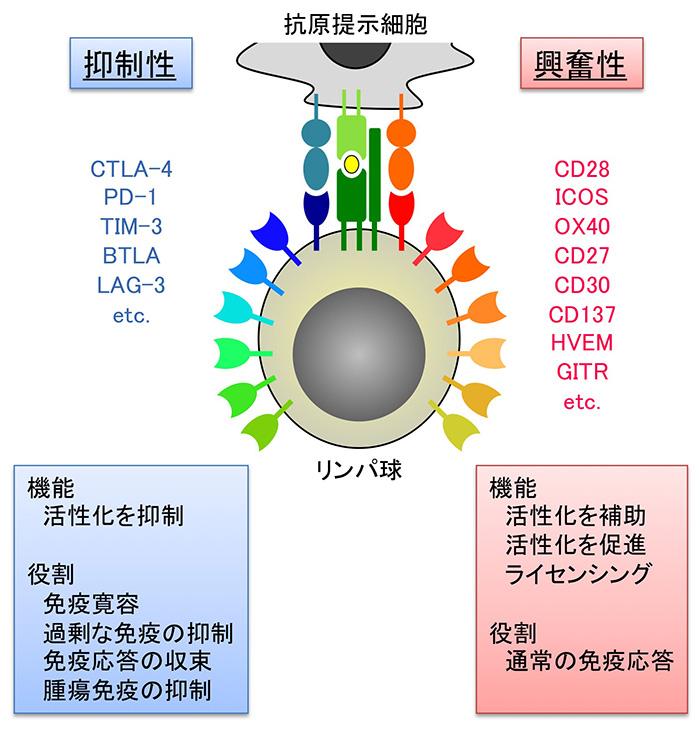
There are both stimulatory and inhibitory co-receptors. Stimulatory co-receptors enhance activation of lymphocytes as well as they provide licensing signal for activation to lymphocytes. Inhibitory co-receptors dampen adverse immune responses such as excess or long-lasting infectious immunity and autoimmunity.